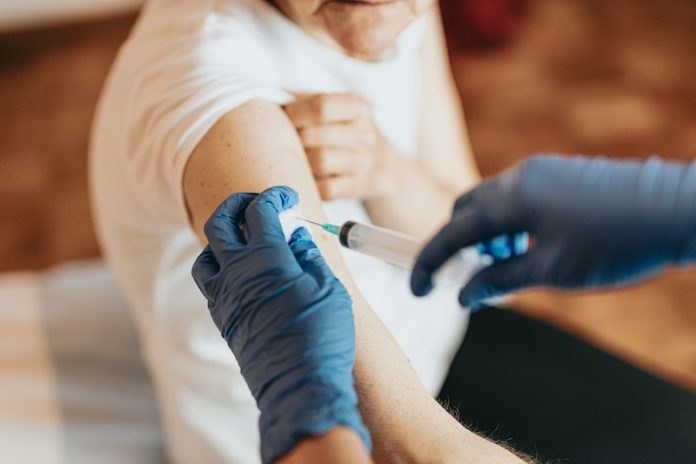
Shingles is a painful skin condition that many people face as they grow older. It comes from the same virus that causes chickenpox. After someone recovers from chickenpox, the virus doesn’t completely leave the body. Instead, it stays dormant in nerve tissues, sometimes for decades, until it reactivates as shingles.
Shingles causes a rash, often with burning pain, and can make daily life uncomfortable. However, there’s more to worry about than just the rash. When the virus becomes active again, it can increase the risk of serious health problems like heart attacks and strokes.
Research has shown that in the first month after shingles appears, the chance of a heart attack or stroke rises significantly. If the virus affects certain nerves in the face, the risk of stroke can double or even triple.
Thankfully, recent studies suggest that a shingles vaccine could not only protect against the rash but also reduce the chances of heart attacks and strokes. This discovery is bringing new hope to older adults who are more vulnerable to shingles and its complications.
James Mbinta, the lead researcher in a new study, found that the shingles vaccine provides significant protection against these serious conditions.
The researchers examined hospital data from adults who received the vaccine and compared two periods: the first 42 days after vaccination and a later window between 72 and 162 days.
They discovered that fewer people were hospitalized for strokes or heart attacks in the first six weeks after getting the vaccine. This suggests the vaccine cuts the risk of these events by about half during that critical period.
The study analyzed data from 278,375 adults in New Zealand who were vaccinated between 2018 and 2021. Most participants were over 70 years old, indicating that older adults may benefit the most from the vaccine.
These findings match earlier research conducted in Australia, which also showed a decrease in strokes among vaccinated adults aged 70 to 79.
This isn’t the first time the shingles vaccine has demonstrated its value. In previous studies, it was found to lower the risk of nerve pain, a common and painful complication of shingles.
Now, with evidence linking the vaccine to reduced risks of heart and brain issues, it’s clear the benefits go far beyond preventing the rash.
To understand why this vaccine is so important, it helps to know how common shingles is. About one in three people will develop shingles during their lifetime, and the likelihood increases with age.
For older adults, the vaccine can provide an added layer of protection against potentially life-threatening complications like strokes and heart attacks.
Of course, any medical decision should be made after discussing it with a healthcare provider. Vaccines come with their own sets of benefits and risks, so it’s always wise to consider your overall health and circumstances.
This study, published in Nature Communications, highlights the growing recognition of vaccines as tools not only to fight infections but also to prevent other health problems.
For those concerned about their heart and brain health, especially as they age, the shingles vaccine may be worth considering. It’s a small step that could make a big difference in preventing serious health events and improving quality of life.
If you care about Alzheimer’s, please read studies about Vitamin D deficiency linked to Alzheimer’s, vascular dementia, and Oral cannabis extract may help reduce Alzheimer’s symptoms.
For more information about brain health, please see recent studies about Vitamin B9 deficiency linked to higher dementia risk, and results showing flavonoid-rich foods could improve survival in Parkinson’s disease.
Copyright © 2025 Knowridge Science Report. All rights reserved.



